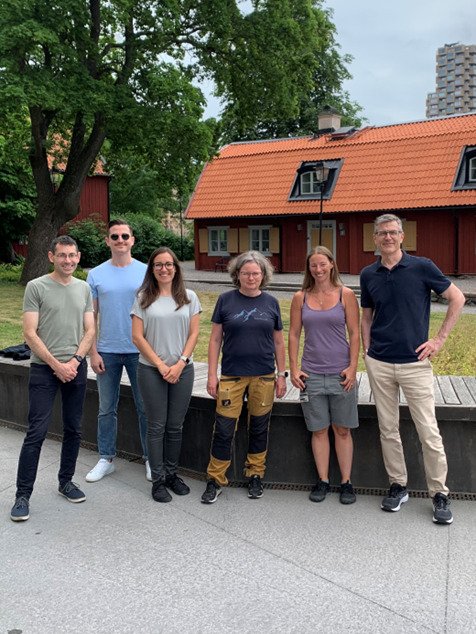
The tumor suppressor gene TP53
The p53 protein regulates cellular processes such as cell cycle progression, apoptosis and metabolism through transcriptional transactivation of target genes, e.g. p21, Bax and Puma. The TP53 gene is mutated in around half of all tumors. Most TP53 mutations are missense mutations that disrupt p53's specific DNA binding and transcriptional transactivation activity. A smaller fraction of human tumors carry TP53 nonsense mutations that result in a truncated non-functional p53 protein (see Soussi & Wiman, Cell Death Differ. 2015).
Reactivation of mutant p53: a novel strategy for cancer therapy
The high frequency of TP53-mutations in human tumors makes mutant p53 an interesting target for novel cancer therapy. We have identified the compound PRIMA-1 and the structural analog APR-246 (PRIMA-1Met) that induce apoptosis in TP53 mutant tumor cells and inhibit tumor growth in vivo in mice (Bykov et al. Nature Med. 2002; Bykov et al. Oncogene 2005). Both PRIMA-1 and APR-246 are converted to the active compound MQ, a Michael acceptor that binds covalently to cysteines in the p53 core domain and enhances thermostability of the protein (Lambert et al. Cancer Cell 2009; Zhang et al. Cell Death Dis. 2018). We have also found that APR-246, via MQ, can affect the redox balance in cells, for example by inhibition of thioredoxin reductase and binding and depletion of glutathione (Peng et al. Cell Death Dis. 2013; Mohell et al. Cell Death Dis. 2015; Ceder et al. EMBO Mol. Med. 2021). These redox effects probably contribute to tumor cell death. The substance synergizes with cisplatin and other chemotherapeutic drugs. APR-246 has been tested in several clinical trial sponsored by Aprea Therapeutics (Lehmann et al. J. Clin. Oncol. 2012; ClinicalTrials.gov; aprea.com). We are also characterizing compunds that can induce translational readthrough of nonsense mutant TP53 and restore expression of full length functional p53 protein in tumor cells (Palomar-Siles et al. Cell Death Dis. 2022).
Zmat3 (Wig-1) a p53-induced gene
Identification and characterization of novel p53-regulated genes is important in order to understand the p53 pathway and p53-mediated tumor suppression. We identified the p53 target gene Zmat3 (Wig-1), located on human chromosome 3q26.3-27 (Varmeh-Ziaie et al. Oncogene 1997; Hellborg et al. Oncogene 2001). Zmat3 encodes a conserved zinc finger protein with affinity for double stranded RNA (Mendez-Vidal et al. Nucl. Acids Res. 2002). Our results suggest that Zmat3 directs the p53 response towards cell cycle arrest by regulation of specific p53 target genes at the mRNA level (Bersani et al. Oncogene 2014). Further studies are focused on the role of Zmat3 in vivo in mice carrying a conditional Zmat3 knock-out allele.
